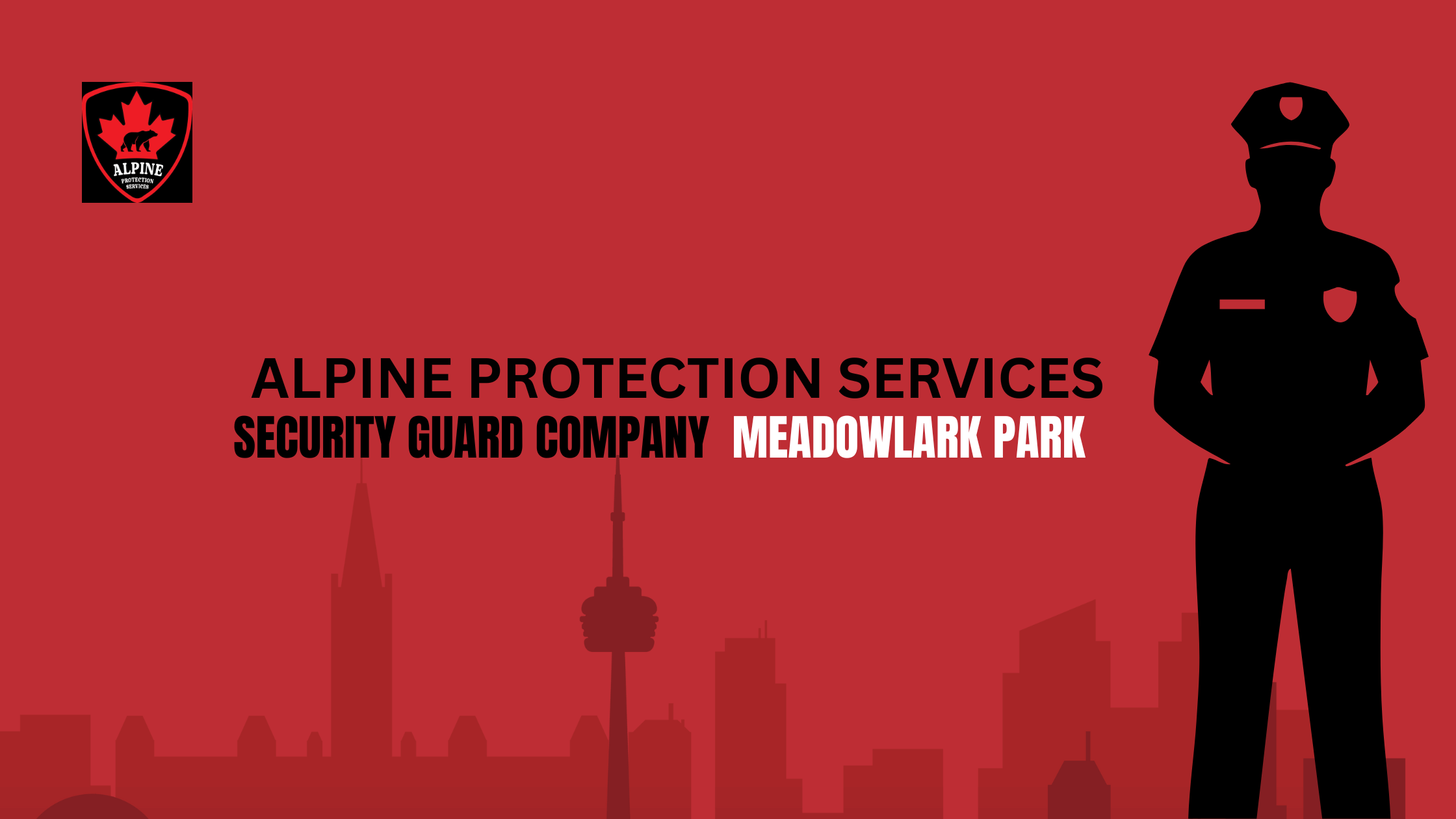Security Guard Services in Meadowlark Park
Trusted Security Guard Services for Meadowlark Park’s Growing Community
Meadowlark Park is an established Edmonton area featuring residential properties, retail centers, and nearby services. With steady daily activity, reliable security coverage is important for safety and order. Alpine Protection Services provides professional security guard services in Meadowlark Park, delivering mobile patrols, access control, and incident response. Our Edmonton-based guards focus on visibility and proactive monitoring, helping deter risks while supporting businesses and residents through clear communication, detailed reporting, consistent site awareness, and structured security planning for ongoing community confidence.
Professional Security Guard Services You Can Trust
Alpine Protection Services is a licensed and insured security guard company headquartered in Edmonton, providing comprehensive protection to businesses and residents across Alberta. Whether you operate a retail store, construction site, industrial facility, or manage public properties in Meadowlark Park, our team is equipped with advanced security strategies, real-time reporting technology, and highly trained guards to protect what matters most.
Our Security Services Include
Retail Security
Why Choose Alpine Protection Services in Meadowlark Park?
- Alberta-licensed and professionally trained guards
- 24/7 monitoring and emergency deployment
- Custom security plans based on risk assessment
- Edmonton head office ensuring strong operational support
- Transparent pricing with no hidden fees

Industries We Serve
Banking & Financial Institutions
Healthcare & Hospitals
Education & Campus Facilities
Residential & Multi-Housing Communities
Government & Public Sector
Transportation & Logistics
Event & Entertainment Venues
Camps & Remote Work Sites
Parking & Facility Management
Amusement & Recreation Parks
Construction Industry
Oil & Gas Industry
Industrial & Manufacturing
Commercial & Corporate Offices
Retail & Shopping Centres
Have an inquiry?
FAQ's
Frequently Asked Questions
Meadowlark Park’s residential areas, retail centers, and community facilities require adaptable and professional security solutions.
Yes. We monitor all property types, including homes, businesses, and public spaces.
Absolutely. We protect a variety of sites across Meadowlark Park, ensuring safety for all stakeholders.
Yes. Regular patrols are conducted to maintain safety and deter unauthorized activity.
Yes. We provide patrols, monitoring, and reporting tailored to local needs.
Yes. Mobile security units respond promptly to any incidents or concerns.
Yes. Plans are tailored by zone, property type, and risk level to ensure maximum protection.


